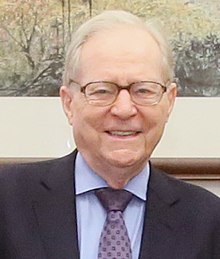Baranov was a leading representative of the Russian school of intersectoral analysis and the measurement of industrial production. His work is distinguished by scrupulousness in working with numbers; knowledge of the peculiarities of production in various industries; and a combination of economic intuition, knowledge of the peculiarities of data collection, and general principles of building a system of statistical indicators—whether it is the balances of the national economy or the system of national accounts. Baranov first met national statistics when he was still a student. At the Moscow State Institute of Economics, Baranov attended the lectures of Boris Moiseevich Smekhov. Unlike many professors at the time, who taught their students on conditional data, Professor Smekhov gave students assignments based on real statistics, using statistical compilations of the 1920s and 1930s.
Baranov considered Vasily Sergeevich Nemchinov and Vladimir Viktorovich Kossov to be his immediate teachers.
Baranov was born on April 18, 1939. After graduating in 1961, he started post-graduate studies at the Institute of Economics of the USSR Academy of Sciences and from 1963 to 1985 he worked at the Central Economics and Mathematics Institute, where he received PhD and Doctoral degrees, was head of the laboratory, and served as deputy director for scientific work. He then worked for the Soviet Government, and from 1991 to 2007, he served as Deputy Director of the Center for the Economic Situation under the Russian Government. From the end of the 1990s and until his final days, Baranov was connected with HSE University. For the last decade he has been working as lead researcher at the Development Center Institute and the Productivity Research Center.
Baranov’s professional interests were not limited to inter-branch balances but were always closely related to domestic statistics and practical issues of their use. He worked a lot on general problems of economic measurement, the construction of the indicators of production dynamics, and advised statistical bodies and public administration. He was very well known and well regarded at the Federal State Statistics Service (Rosstat), at the Ministry of Economic Development, and at a number of other organizations. His contribution was highly appreciated by the scientific community. In 2016, he was awarded the Kondratiev Prize for a series of works on the theory and methodology of statistical reflection and the mathematical modeling of economic processes.
Baranov was able to unite the people around him and to conduct meaningful work under difficult conditions, including the transitional period of the 1990s. Many of his students now work in science, public service, and research organizations in Russia and other post-Soviet countries.
Baranov considered his work to be very important for him personally. Despite a long and serious illness, he worked until the end. He was creating fundamentally new possibilities for the study of the Russian economy on the basis of sophisticated statistical apparatus, realizing that the results of this work would be fully exploited by others. Despite the general decline of statistical culture, the prestige of the profession, and public confidence in official statistics, Baranov formed the groundwork for new generations of researchers, without lowering the professional bar for himself. Continuing his work, using the data he prepared and his methodological developments, and supporting the domestic school of intersectoral analysis is the best way to keep his memory alive.
I.B. Voskoboynikov, Head of the Center for Productivity Research, HSE University
